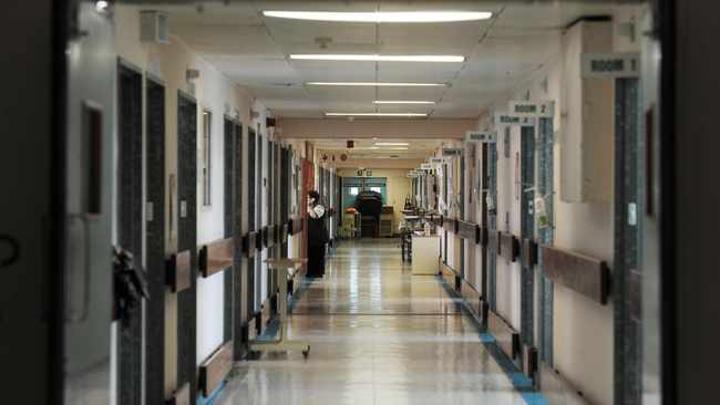Africa-Press – South-Africa. Cape Town — Western Cape hospitals are still facing significant strain, and current data is still being affected by the festive season public holidays and a change in the province’s testing criteria.
According to Premier Alan Winde, there are early signs that the province has entered the peak of the second wave in the province and with hospitalisations and mortality data reflecting the significant pressure currently experienced in the region.
“In the metro, our case data continues to be affected by the festive season public holidays and a change in our testing criteria. However, we believe that it is a good sign at this stage that cases are not increasing but have decreased slightly by 1%,” Winde said..
“More reliable data such as the test positivity rate dropped from a peak of 50% to around 35% on 7 January,” Winde said.
“As at January 7, we had recorded a 26% drop in hospitalisations as well. We have seen this tick up again over the past few days and we are watching closely to determine whether this is a trend.”
In the rural areas, the province is starting to see case numbers stabilise although increases in the West Coast and in the Central Karoo are still being seen as they have experienced later surges.
In the Garden Route, numbers continue to be on a downward trajectory.
“We are cautiously optimistic that the second wave is starting to stabilise. This does not, however, mean that we are starting to see a decline yet and we must continue to take precautions to keep ourselves safe,” Winde said.
He explained that hospitals were still experiencing significant pressure as the those in the metro have an average occupancy of 93%, the George drainage area has a 61%, occupancy, Paarl 74% and Worcester 73%.
The Hospital of Hope at Brackengate currently has 305 admitted patients, Freesia and Ward 99 have 67 patients, Sonstraal currently has 60 and the Hospital of Hope in Mitchells Plain has 92.
“Our Department of Health is working around the clock to ensure that, at all times, we have an adequate supply of beds, staff, and oxygen to provide the care people need.
“Our hospitals and health-care workers are working under extreme pressure to ensure that every person who needs a bed and care has access to one but we all have a role to play in ensuring that we relieve that pressure,” Winde said.
According to provincial Head of Health Dr Keith Cloete, not a single Western Cape Department of Health emergency department has turned a patient away.
“They have assessed every person, and every patient on their merits, and if anybody needed to be hospitalised (then) they have been hospitalised. That’s why we brought additional beds online.
“We are under pressure, but we are not overwhelmed. That is what we planned for. It’s very stressful, it’s very pressured but the system is not overwhelmed.”
As for health-care workers in the province, as of January 12, there were 1 029 active Covid-19 infections which included 98 doctors, 442 nurses, 23 radiographers, seven pharmacists and 459 people in other categories (admin, cleaning, catering and other categories of health-care workers).
Winde said this had put additional pressure on the health-care system as people have to isolate and quarantine, and also placed additional stress on health-care workers who are tired, anxious and feeling the psychological impact of the loss of colleagues, family members and friends.
“This is why it is critical that our health-care workers, who are on our front line, receive the first doses of the vaccine.
“The Western Cape Department of Health is also scaling up the system to provide on-site mental health and well-being support to health-care workers,”
The process of appointing additional health-care workers is still under way. As of January 11, a total of 286 additional staff had started in facilities across the province.
Of these, 100 were based in the metro and 186 in rural regions.
Winde reiterated the call for everyone to be safe and do their part to stop the spread of the coronavirus.
“We must wear our masks, wash our hands, keep our distance, avoid close contact and crowded spaces. This is the right thing to do to protect ourselves, and others and to flatten the curve.”
Cape Argus






